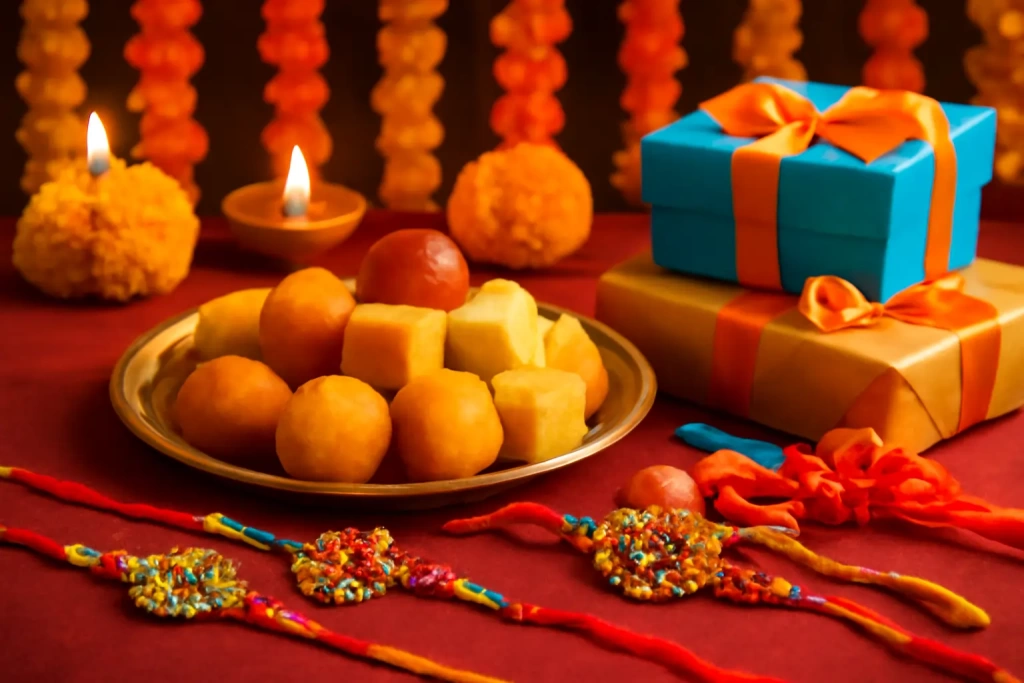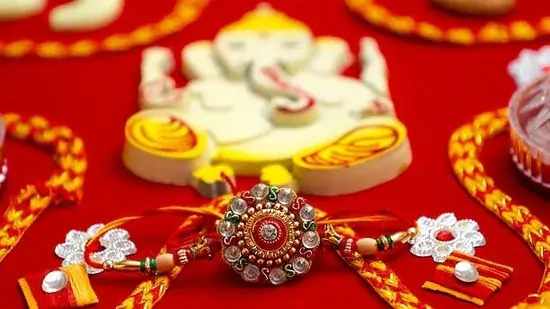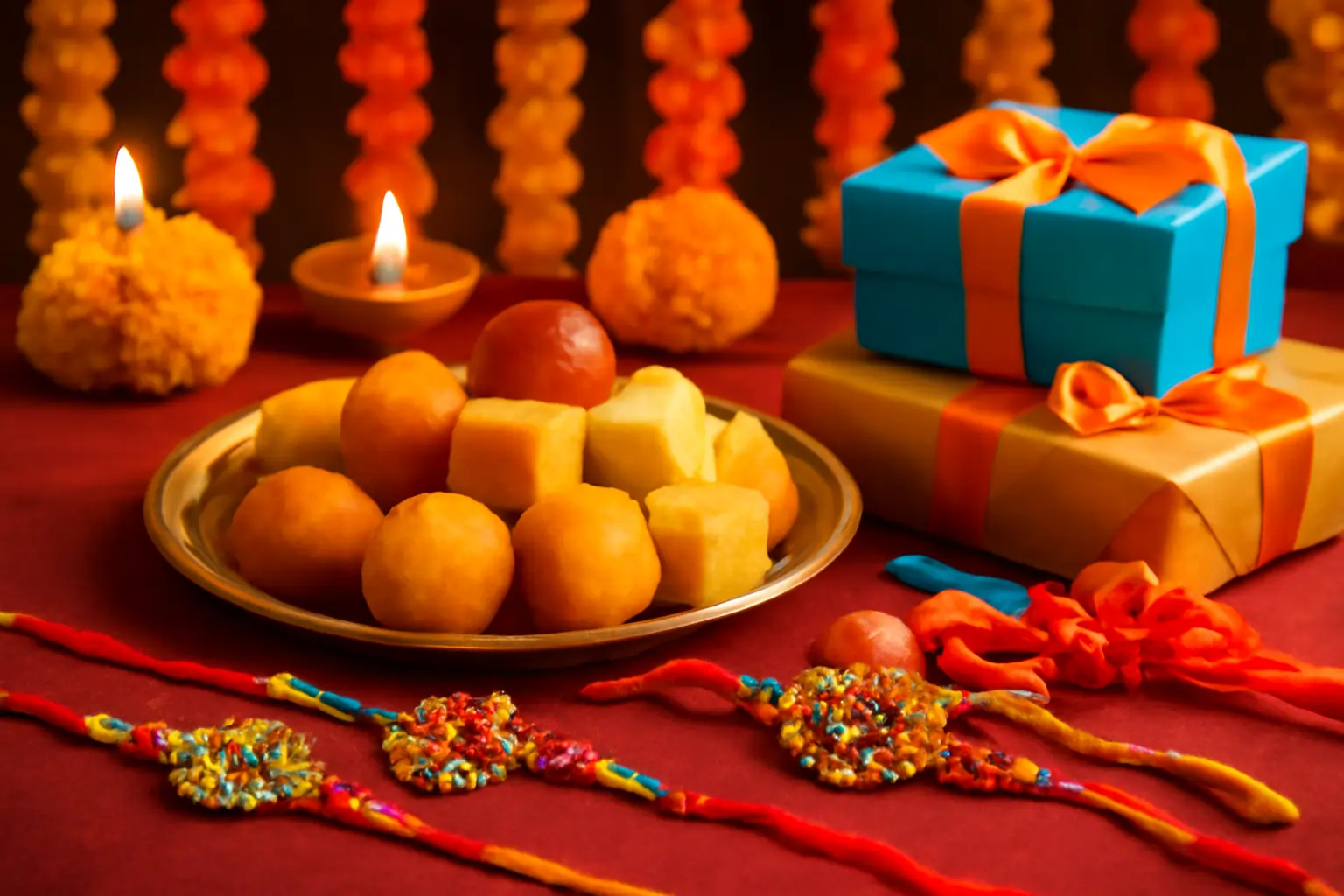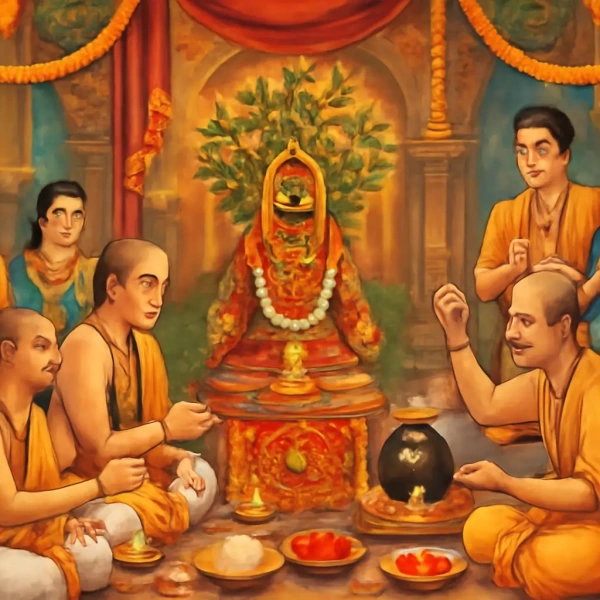
Introduction: What is Raksha Bandhan?
Raksha Bandhan, also known as Rakhi, is one of the most endearing and sentimental festivals of Hinduism. It commemorates the divine sibling bond between brothers and sisters — a relationship founded on love, faith, respect, and brotherly care. Marked on the full moon day (Purnima) of the Shravan month, Raksha Bandhan moves beyond geographical limitations and religious convictions and is an indication of unity and family peace.
In Sanskrit, “Raksha Bandhan” means the “bond of protection.” On this day, sisters are supposed to tie a protective thread or rakhi around the wrist of their brothers, and the brothers promise to protect their sisters from all evils. However, today, the tradition has evolved, and rakhis are now tied around anyone who serves as a protector, including brothers, their cousins, friends, and even spiritual gurus.
Mythological and Historical Significance
Raksha Bandhan is filled with many mythological, cultural, and historical tales:
Mythological Origins:
Lord Krishna and Draupadi: Among the most well-known stories in popular culture is Draupadi ripping a strip from her saree to bandage Lord Krishna’s wounded finger. Moved by her sacrifice, Krishna decides on lifelong protection. Such a heartfelt and spiritual connection. That is the real essence of Raksha Bandhan.
Indra Dev and Sachi: At an intense fight between the gods and demons, Indra’s wife Sachi bound a sacred thread around Indra’s wrist, giving him the power to triumph. This is one of the earliest mentions of the Raksha Sutra.
Yamuna and Yama: The God of Death, Yama, made his sister Yamuna immortal when she bound a rakhi around him. This story represents endless sibling love.
Historical Reference
Rani Karnavati and Emperor Humayun: Under attack by Bahadur Shah, Rani Karnavati of Mewar sent Humayun, the Mughal emperor, a rakhi to seek protection. Respecting the tradition, Humayun led an army to her defense, showing how Raksha Bandhan can overlook religion and politics.
Raksha Bandhan Rituals: Exploring the Traditions in Detail

1. Preparations:
- Clean the house and create a sacred space.
- Adorn the puja thali with rakhi, roli, chawal (rice), sweets (such as laddoos), diya, and flowers.
- Sisters usually wear traditional clothes and sometimes observe a fast until the ceremony is over.
2. The Rakhi Ceremony:
- Aarti: Sisters do aarti of their brothers, with a lighted diya, going round in a circular motion while reciting prayers.
- Tilak: A red vermilion (roli) mark is given on the brother’s forehead, followed by a sprinkling of a few grains of rice.
- Tying the Rakhi: Rakhi is wrapped around the wrist of the brother on the right side while reciting mantras or silently praying for his long life and happiness.
- Feeding Sweets: The brothers are fed sweets by their sisters as an expression of sweetness between them.
- Gift Exchange: Brothers exchange thoughtful gifts, money, or symbols of love in return, strengthening their bond.
- Vow of Protection: The brother swears to be with and protect his sister at all times.
3. Post-Ritual Activities:
- Families tend to meet for meals and spend some quality time together.
- Brothers can even present gifts or rakhis to their cousins and sisters-in-law, making the family celebration wider.
Symbolism of Rakhi
Thread of Protection: The rakhi is symbolic of an unbreakable bond and a promise to protect.
Sanskrit Roots: The tying of a raksha sutra is even observed in Vedic yajnas, signifying the ancient origins of this tradition.
Expanding Circles: In most parts of the country, girls also tie rakhi to male cousins, friends, or even soldiers, as an expression of respect and solidarity.
Regional Variations
Maharashtra: Narali Purnima, when fishermen worship the sea for prosperity by offering coconuts to it.
West Bengal & Odisha: As Jhulan Purnima, where Lord Krishna and Radha are worshipped.
South India: Named Avani Avittam, it consists of the changing of sacred threads by Brahmin men and rituals for spiritual rejuvenation.
Dos and Don’ts on Raksha Bandhan
Do’s:
- Get up early, take a bath, and dress in fresh or traditional attire.
- Arrange the puja thali with clean and auspicious material.
- Tie the rakhi on Shravan Purnima muhurat, shunning inauspicious periods like Rahu Kaal.
- Convey your sentiments naturally; the emotional value is more than the rituals.
- If separated by distance, use courier services or video calls to maintain the bond.
Don’ts:
- Do not tie the rakhi with dirty hands or impure items.
- Avoid negative speech or arguments on this sacred day.
- Do not eat non-vegetarian food, drink alcohol, or engage in tamasic activities.
- Refrain from tying the rakhi after sunset.
Online Raksha Bandhan Celebrations
In the modern digital era, Raksha Bandhan is now celebrated online with virtual platform options and courier services. These particularly suit NRIs and brothers and sisters who live apart, keeping traditions alive in the following ways:
| Platform | Special Feature |
| Ferns N Petals | Worldwide Rakhis delivery + custom gift hampers |
| IGP | Designer rakhis, pooja thalis, and Indian sweets shipped globally |
| RakshaBandhan.com | Live rakhi tying, video message sharing, and personalized e-cards |
| Amazon/Flipkart | Last-minute rakhi sets, combo packs, and express delivery |
FAQs on Raksha Bandhan
Q1: Is Rakhi tied to anyone other than a brother?
Yes. You can tie Rakhi to anyone you consider to be your brother, cousins, friends, spiritual guides, and even soldiers.
Q2: Are married sisters allowed to participate in Raksha Bandhan?
Absolutely. Married sisters usually visit their parental house or send rakhis to keep the bond intact.
Q3: What if I don’t have a brother?
You may tie a rakhi on a close friend, cousin, or somebody you respect. The feeling of protection is important.
Q4: What if the rakhi breaks or falls off?
If a rakhi falls off of its own accord, it is believed that the intention of the rakhi has been served. Dispose of it peacefully in running water or under a tree.
Q5: Is Rakhi possible without a priest?
Yes. Rakhi is a home, emotional festival, and not a priest-dependent one. It only needs simple rituals with love.
Conclusion: A Festival That Goes Beyond Rituals
Raksha Bandhan is not just a ritualistic bundling of a thread. It is a reminder of the sacredness of ties, a gesture of love, and a celebration of lifelong commitments. It instructs us to defend, honor, and nurture one another, not only as brothers and sisters, but as fellow human beings in the same world.
Make this Raksha Bandhan not only a ceremony, but a reassertion of love, compassion, and harmony. When the world requires goodwill, Raksha Bandhan ties hearts together with a thread of hope and sympathy.
“Rakhi is not a thread, it is a vow — of guarding, of loving, and of perpetually.”

